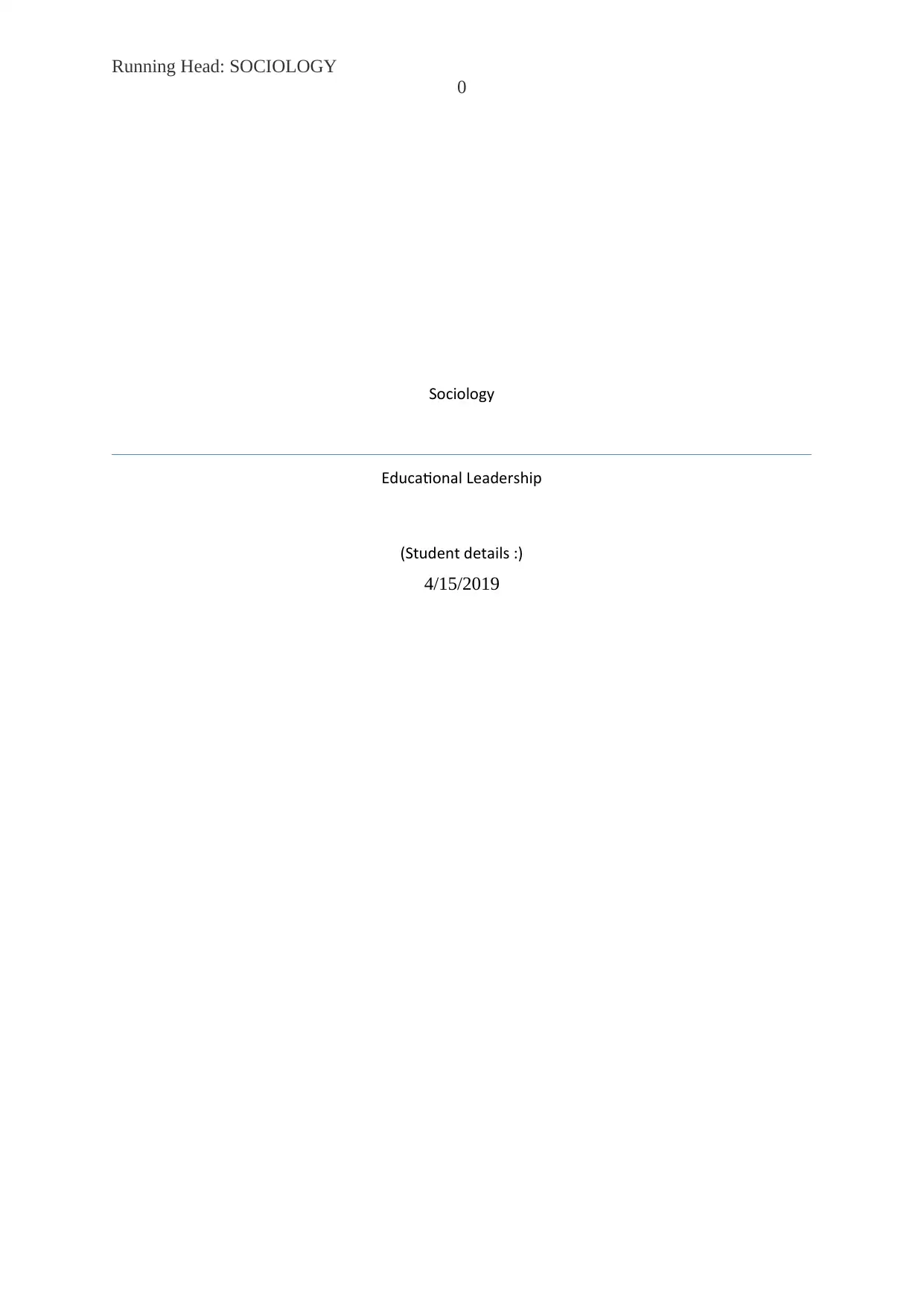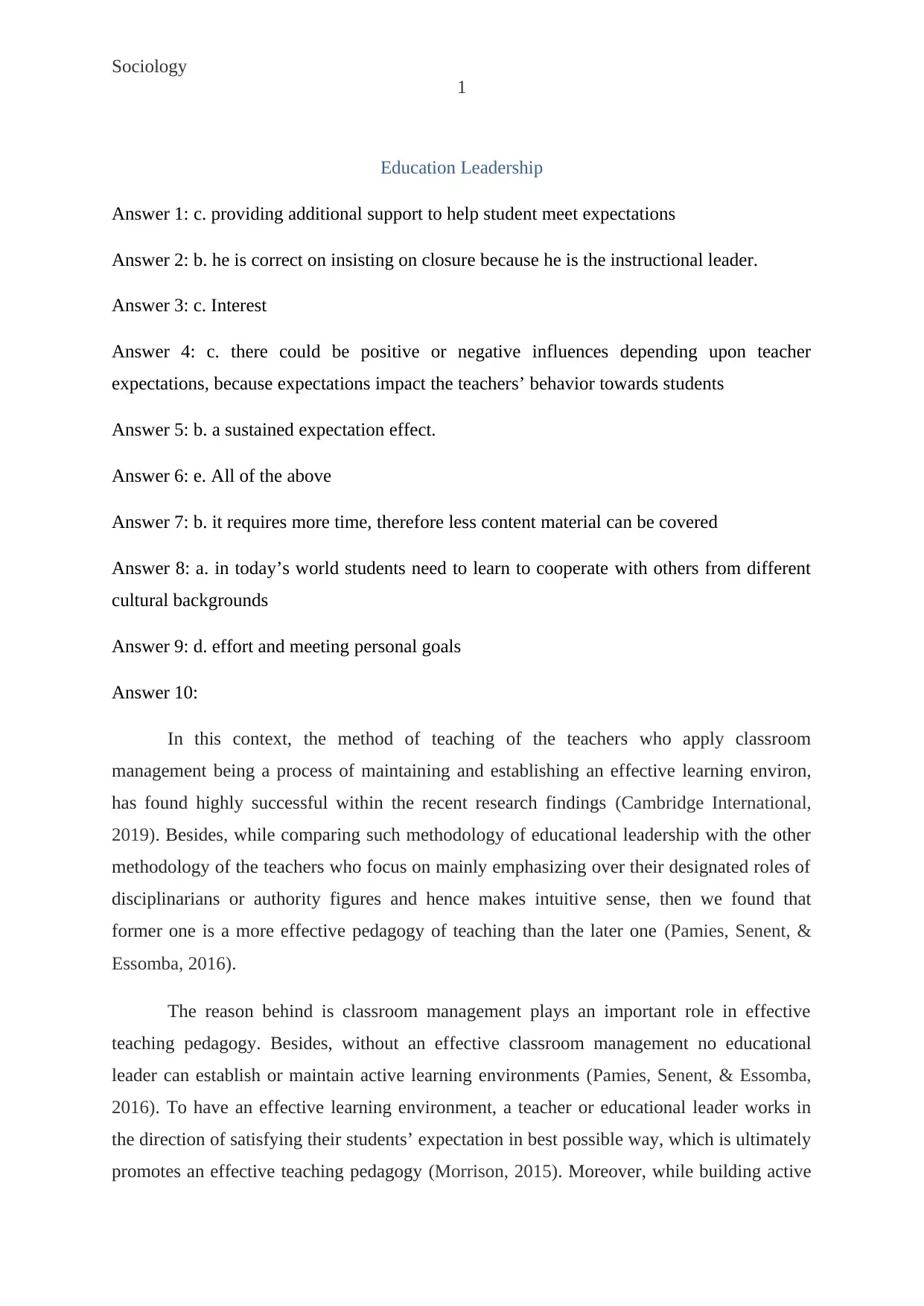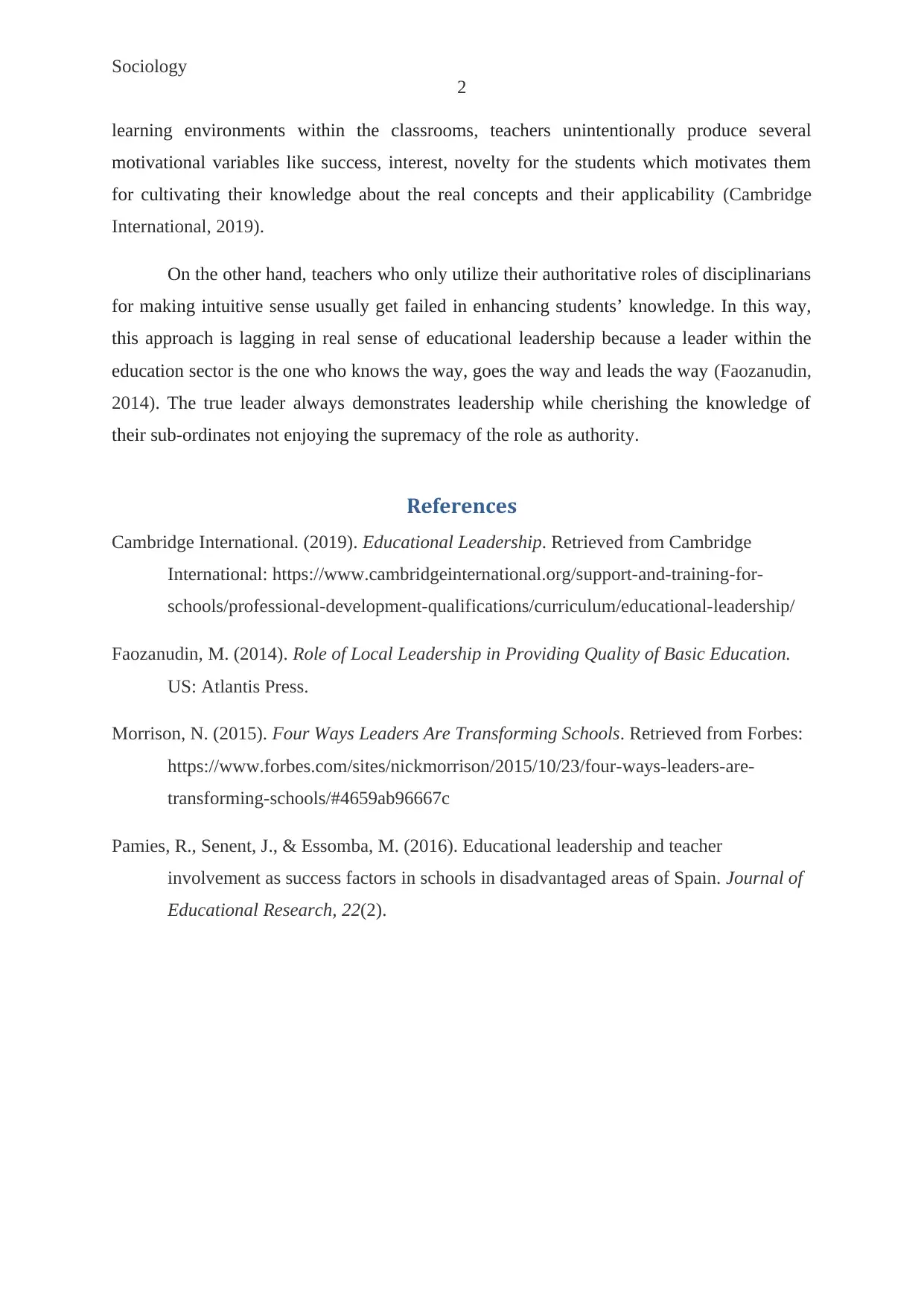Sociology Homework: Chapter 5 and Educational Leadership ED 513
VerifiedAdded on 2023/01/19
|3
|583
|63
Homework Assignment
AI Summary
This document presents solutions to a sociology homework assignment based on Chapter 5, "The Professional Teacher," from the ED 513 course. The assignment includes multiple-choice questions and a short answer response. The multiple-choice questions address concepts such as warm demander teachers, the importance of lesson closure, student interest, and the impact of teacher expectations. The short answer response delves into the effectiveness of classroom management techniques in establishing effective learning environments, comparing it to the traditional disciplinary approach. The response emphasizes the role of educational leaders in fostering student motivation and knowledge acquisition by satisfying student expectations and creating an engaging learning environment, with references to relevant academic sources.
1 out of 3









![[object Object]](/_next/static/media/star-bottom.7253800d.svg)